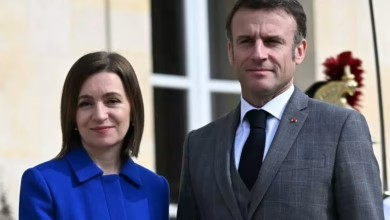Nigel Farage, the renowned politician who played a pivotal role in championing Britain’s exit from the European Union, made a significant announcement on Monday. Farage declared his intention to participate as a candidate in the upcoming election next month. The 60-year-old politician will contest the parliamentary seat in Clacton, a coastal town in eastern England that notably voted overwhelmingly in favor of Brexit during the 2016 referendum.
Farage’s decision marks a significant development in the political landscape, given his influential role in shaping the Brexit movement. His candidacy is expected to garner substantial attention, particularly in the context of the ongoing election campaign. Farage’s participation in the election is anticipated to have a profound impact on the political dynamics, especially considering his history of championing Eurosceptic views.
In a surprising move, Farage had initially announced that he would not participate in the election, instead opting to focus on supporting former US President Donald Trump’s re-election campaign . However, in a recent turn of events, Farage revealed that he had changed his mind, citing the need to respond to the demands of his supporters.
Farage’s decision to contest the election has been met with a mix of reactions, with some viewing it as a strategic move to appeal to right-wing voters. His participation may potentially split the conservative vote, which could have significant implications for the election’s outcome. Farage’s candidacy may also lead to a realignment of political alliances, as his presence in the race is expected to draw support from various quarters.
Despite his influential role in shaping the Brexit movement, Farage has faced criticism for his controversial views on immigration and his perceived divisive rhetoric. His candidacy is expected to be closely watched, with many anticipating how his presence in the election will impact the broader political landscape.
Farage’s decision to contest the election in Clacton is seen as a strategic move, given the town’s strong support for Brexit in the 2016 referendum. His candidacy is expected to resonate with voters who share his views on the European Union and immigration. However, it remains to be seen how his presence in the election will impact the outcome, particularly in light of the complex political dynamics at play.
In the past, Farage has been associated with various political parties, including the UK Independence Party (UKIP) and the Brexit Party. His current affiliation is with the Reform UK party, which has been gaining traction in recent polls. Farage’s candidacy is expected to bolster the party’s prospects, particularly among voters who share his views on the European Union and immigration.
Farage’s announcement has sparked a lively debate in the political sphere, with many analysts weighing in on the potential implications of his candidacy. While some view his participation as a strategic move to appeal to right-wing voters, others see it as a risky gamble that may ultimately harm his political prospects.
As the election campaign gathers momentum, Farage’s candidacy is expected to be a significant factor in shaping the political narrative. His presence in the race is likely to draw attention to the issues he has championed, including Brexit and immigration. The outcome of the election will be closely watched, particularly in light of Farage’s influential role in shaping the political landscape.
In conclusion, Nigel Farage’s decision to participate in the upcoming election has significant implications for the political landscape. His candidacy is expected to shape the political narrative, particularly on issues related to Brexit and immigration There was a problem generating a response. Please try again later.
